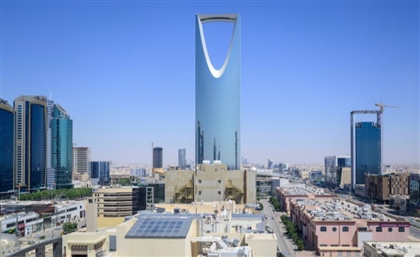How Egyptian Startups are Navigating Uncertain Times
As investors become more cautious about their funding, Egyptian entrepreneurs are wondering if they could weather the storm.

Record high inflation, fluctuating currency, and war in Ukraine and Gaza have resulted in a myriad of challenges for the Egyptian economy, and consequently ,for startups and entrepreneurs across Egypt. And as investors become more cautious before they deploy their funding, many entrepreneurs are feeling overwhelmed, wondering if they could weather the storm.
In 2023, investments in Egyptian startups declined by 17% compared to 2022, according to a report by Wamda. The number of startups that managed to raise investments last year halved compared to 2022, with total value dropping from $736.9 million to $608 million.
“Startups are very high risk by nature,” says Ayman Ismail, Founding Director of AUC Venture Lab. “Startups at the early stage already have traditional risks that they need to manage, including market risk and business model risk. It is very challenging for them to as well be managing extreme macroeconomic challenges, especially when they don’t have the cash resources to do so.”
With challenges expected to persist for much of 2024, Egyptian startups are bracing for another year of uncertainty.
ADAPTING TO THE MARKET
-93553efa-0a58-4e33-b8a6-cb8df98129a1.jpg) Despite challenges in the local market, some Egyptian startups are proving to be resilient, quickly adapting to changing market conditions. For Yalla Fel Sekka (YFS), a tech-logistics startup, focusing on expanding locally instead of regionally seemed to be the right decision for the business, especially since expansion requires a lot of capital.
Despite challenges in the local market, some Egyptian startups are proving to be resilient, quickly adapting to changing market conditions. For Yalla Fel Sekka (YFS), a tech-logistics startup, focusing on expanding locally instead of regionally seemed to be the right decision for the business, especially since expansion requires a lot of capital.
“When the crunch happened, we were very cautious and very fast in pivoting,” says Yasmine Abdel Karim, Co-Founder of YFS. “We did a lot of analysis and scenario planning, and realised that it’s best to really focus on profitability and reducing our cash burn. As they say, cash is king. So, even if we had ideas of expanding into another market, we’re reconsidering it because things in the outlook are not yet clear. And they’re not clear not because of the startup itself, but because of what’s happening globally.”
While the startup is maintaining growth, it is also experiencing market uncertainty, particularly with supply chain disruptions and dwindling purchasing power. As a result, its delivery volumes have been affected. “People today are more concerned with their spending, so the volumes have gone down,” Abdel Karim adds. “The wars and the devaluation have also made imports difficult.”
But since the startup serves diverse sectors, particularly groceries, YFS’s business has mostly been shielded. “Groceries are a safe haven,” Abdel Kairm says. “People need to eat in the end.”
YFS is not the only startup navigating the current turbulent economic situation. Source Beauty, an Egyptian startup that was acquired by the Egyptian Company for Cosmetics (ECC) in 2022, is also feeling the impact. Providing locally sourced beauty products, the startup has had to adapt to ever changing market conditions to stay relevant. “Being adaptable is a way to stay healthy, especially as an Egyptian business in the ecommerce scene,” says Lydia Schoonderbeek, Chief Creative Officer at The Egyptian Cosmetics Company, and Founder of Source Beauty. “You get a piece of news, and things change. Inflation rates, exchange rates and prices, everything is happening so fast. So, you need to be able to move quick, but also to be very adaptable.”
Although the startup has managed to adapt and meet the increasing demand for local products, pricing products has proven to be difficult. Many local brands rely on importing raw materials, resulting in price increases - something Schoonderbeek believes is unsustainable long term.
“These days, it’s getting harder to pass the increase of costs to the customer,” Schoonderbeek says. “Because the customer is getting very impatient, how far can we go with the prices? How far will the customer go ahead and spend on certain products? It’s a very tricky situation, especially because we’re not seeing an end to this.”
EXPANDING REGIONALLY
-fb85f1f1-c8a9-47eb-a0ca-304289c9422c.jpg) Financial challenges are leading many Egyptian startups to expand regionally, particularly to Saudi Arabia as a way to support their business.
Financial challenges are leading many Egyptian startups to expand regionally, particularly to Saudi Arabia as a way to support their business.
Last year, several Egyptian startups announced that they will be relocating their headquarters to Saudi Arabia, including Taager, a social e-commerce platform, Intella, a research-driven deeptech company, and Seavo, a marine mobility startup, among others.
The appeal is clear. As the largest market in the GCC with a GDP of $1.7 trillion in 2023, according to World Economics, Saudi Arabia is positioning itself as a regional and global destination for entrepreneurs from across the world, as part of its Vision 2030 to diversify its economy away from oil.
“We’ve seen a lot of startups looking for regional expansion,” says Ismail. “For some, it’s part of their growth strategy, and for others they are doing it basically to survive. I believe that startups should look for opportunities for regionalization only if it makes sense for their business model and stage of growth.”
For Source Beauty, however, it is looking to continue growing the business in the Egyptian market for the time being. “My focus has always been the Egyptian market, and I will continue to be here,” says Schoonderbeek.
LOOKING FOR THE SILVER LINING
-fafdc90a-af38-472e-a899-ef4ba6be625f.jpg) With any challenges, however, there are also opportunities. In times of economic hardship, the companies that usually fare well are those that help people save money, like businesses that offer buy now, pay later (BNPL) and micro-financing services.
With any challenges, however, there are also opportunities. In times of economic hardship, the companies that usually fare well are those that help people save money, like businesses that offer buy now, pay later (BNPL) and micro-financing services.
“There is an opportunity for specific companies that can support people to save money, and manage their lives in situations like these,” says Ismail. “But honestly, there are very limited opportunities in such situations. The companies that do well in downtimes are those that do improvements in supply chain, or provide lending opportunities like consumer lending, SME lending and microfinance lending, because they save people money. But only provided that those companies have the financial resources and depth to be able to manage and grow their business at times like these.”
Regardless of the type of business a startup is in, Isamil advises founders to examine their business model to see how it is responding to current challenges, manage their cash flow and burn rate, and look for opportunities to enter regional markets if it makes sense for their business.
“In general, the economy is resilient,” Ismail says. “However, companies that are cash rich, whether because they just raised substantially or their business generates cash flows, tend to do very well. Companies that require substantial cash flow or cash injections for several years, usually in times like these, don't do well. That’s basically the environment we’re in.”






















